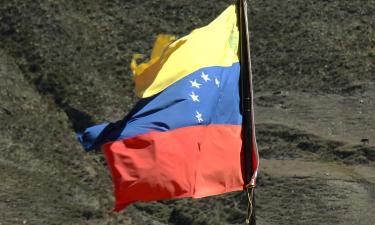Europe to introduce second euro?
Europe begins to think about the introduction of the "second euro for the chosen." The EU countries with most robust economies should issue their own single currency. This can be a goal to pursue for Germany and the Netherlands in the first place, experts say. France is not in the group: its economic situation is too unstable to make the country a member of the "financial VIP Club."
This was said by the former European Commissioner for Internal Market, Frits Bolkestein, on Dutch television. According to him, the new European money should be in use on a par with the joint European currency. The "second euro" will be issued by the Central Bank of Germany. This measure, according to the politician, will allow most creditworthy EU states to protect their financial positions under the conditions of another financial crisis, the main part of which of which is yet to come. "It's time to bring order in chaos," said Frits Bolkestein.
France, which is traditionally referred to as one of the leading countries in the European Union, will not be allowed to join the financial VIP club, Bolkestein believes. According to him, the country is "governed poorly" and is "practically bankrupt."
Despite the fact that the politician was too harsh in his remarks about France, there is a grain of truth in his words. The country has a huge foreign debt, as well as quite sizeable budget deficit. This is a very serious problem against the background of eccentric economic policies of the current French leadership. It is not obvious at all that the state will be able to solve them painlessly, since the decisions taken by the authorities are not always reasonable and adequate. For example, the introduction of the infamous 75-percent tax on luxury to improve the financial situation of the country stirred up quite a controversy. Despite the fact that the Constitutional Court of France banned the tax, President François Hollande continues to attempt to somehow bring it back, at least for businesses that pay their workers higher wages.
Meanwhile, analysts say, should Bolkestein's idea come true, it will lead to most lamentable consequences for both most of Europe and the rest of the world. Such a move may trigger a domino effect for the entire monetary.
"Introducing such a parallel currency in the euro zone can seriously weaken the already shaky position of the euro. Exporters, of course, will be happy to get low rates of the euro, but it is unlikely that the offer is viable in its current form," Investkafe analyst Anna Bodrova said.
In case of the introduction of the new European currency and the inevitable devaluation of the euro, Russia will also receive a signal to get rid of the euro in its currency reserves. The share of the euro in them makes up 40-45 percent," a professor of the Higher School of Economics, Alexander Abramov, said, the Rossiyskaya Gazeta wrote.
However, it should be noted that one should be very cautious about the statements from Fritz Bolkestein. The politician, who in 1990-1998 headed the Party for Freedom and Democracy, and in 1999-2004 served as the former EU Commissioner for Tax Policy, has a very scandalous reputation and is known for his strident statements. In particular, Fritz Bolkestein aggressively attacked Turkey, when the latter expressed a desire to become a member of the European Union. The politician stated that "Europe would be Islamized in this case."
He also shocked the Europeans with his bill about the liberalization of services, which became known as "Bolkestein's directive." The project raised a wave of protests from trade unions and left-wing parties in several countries, where workers from Eastern Europe were plentiful. The document was dubbed the "Frankenstein" directive. However, his most eccentric move was a statement about the need for religious Jews to emigrate from the Netherlands to Israel or the United States, because in the native country of Bolkestein they had no future. A number of politicians of the Netherlands questioned the sanity of Frits Bolkesteyn and his ability to deal with politics.
Given the above, it is difficult to say whether it is possible to draw conclusions about the financial plans of the European Union. Russia's Vladimir Zhirinovsky, the leader of the Liberal Democratic Party of Russia, once said, for example, that "Russia would wash its boots in the Indian Ocean" meaning that Russia was preparing a military expansion in India. Most likely, these two people have something in common.
Anastasia Garina.
Subscribe to Pravda.Ru Telegram channel, Facebook, RSS!





